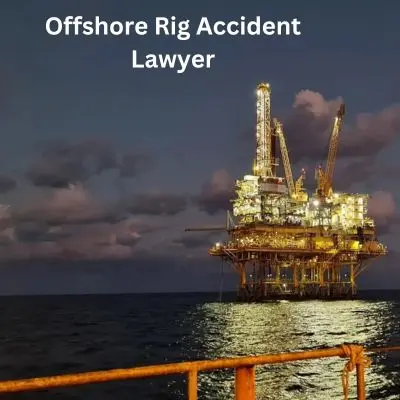Offshore Rig Accident Lawyer: Your Comprehensive Guide to Legal Support
Offshore rig accidents are among the most hazardous workplace incidents, often resulting in severe injuries, financial hardship, and emotional distress for workers and their families. The oil and gas industry operates under dangerous conditions, and when safety protocols fail, the consequences can be devastating.
If you or a loved one has been injured in an offshore rig accident, hiring an experienced offshore rig accident lawyer can make a significant difference in securing the compensation you deserve. This guide will help you understand the importance of legal representation, the laws governing offshore accidents, and how to choose the right lawyer for your case.
Understanding Offshore Rig Accidents
Offshore rigs are high-risk environments due to their remote locations, heavy machinery, and volatile substances. Accidents on these rigs often result in severe injuries or even fatalities.
Common Causes of Offshore Rig Accidents
- Equipment Failure: Malfunctioning or poorly maintained equipment can lead to accidents.
- Explosions and Fires: Oil rigs handle flammable materials, making them susceptible to catastrophic events.
- Slip and Falls: Wet or uneven surfaces are common hazards on rigs.
- Human Error: Lack of training, fatigue, or negligence can contribute to accidents.
- Adverse Weather Conditions: Strong winds and rough seas increase the risk of accidents.
Laws Governing Offshore Rig Accidents
Several laws and regulations protect offshore rig workers and provide avenues for compensation in case of injuries.
1. The Jones Act
The Jones Act, part of the Merchant Marine Act of 1920, allows injured seamen to file claims against their employers for negligence. It covers injuries caused by unsafe working conditions, improper training, or defective equipment.
2. Longshore and Harbor Workers’ Compensation Act (LHWCA)
This federal law provides benefits to workers injured on navigable waters or adjoining areas like docks and terminals.
3. Outer Continental Shelf Lands Act (OCSLA)
OCSLA extends LHWCA protections to workers on offshore platforms located on the Outer Continental Shelf.
4. General Maritime Law
This body of law governs injuries that occur on navigable waters. It includes the doctrine of maintenance and cure, which requires employers to cover medical expenses and living costs for injured workers.
Why Hire an Offshore Rig Accident Lawyer?
Navigating the complex legal framework surrounding offshore accidents requires expertise. An offshore rig accident lawyer specializes in these cases and can provide invaluable assistance.
Key Benefits of Hiring a Lawyer
- Understanding Maritime Laws: Offshore accidents involve intricate maritime laws that a skilled attorney can interpret and apply effectively.
- Maximizing Compensation: A lawyer ensures all damages, including medical expenses, lost wages, and pain and suffering, are accounted for.
- Handling Insurance Companies: Insurers often attempt to minimize payouts. An attorney negotiates on your behalf to secure fair compensation.
- Proving Negligence: Establishing employer or third-party negligence is crucial to winning a case. Lawyers gather evidence, interview witnesses, and build a strong case.
- Trial Representation: If a fair settlement cannot be reached, your lawyer will represent you in court.
Types of Compensation in Offshore Rig Accident Cases
Injured workers may be entitled to various forms of compensation:
- Medical Expenses: Covers current and future medical treatment.
- Lost Wages: Compensation for income lost during recovery.
- Pain and Suffering: Damages for physical and emotional distress.
- Loss of Earning Capacity: Compensation if injuries prevent the victim from returning to work.
- Wrongful Death Benefits: For families of workers who lost their lives in offshore accidents.
How to Choose the Right Offshore Rig Accident Lawyer
Selecting the right legal representation is crucial to the success of your case. Here are some tips:
1. Experience and Expertise
Look for a lawyer with extensive experience handling offshore rig accident cases and a deep understanding of maritime law.
2. Proven Track Record
Review case results and testimonials to ensure the lawyer has a history of securing favorable outcomes.
3. Resources and Network
A reputable attorney has access to resources like expert witnesses, accident reconstruction specialists, and medical professionals.
4. Communication Skills
Your lawyer should be approachable, keep you informed, and be willing to answer your questions.
5. Contingency Fee Basis
Most offshore rig accident lawyers work on a contingency basis, meaning you don’t pay unless you win.
Steps in an Offshore Rig Accident Claim
1. Seek Medical Attention
Your health should be the top priority. Prompt medical care also establishes documentation for your case.
2. Report the Incident
Inform your employer about the accident and ensure it is documented in an official incident report.
3. Gather Evidence
Take photos, collect witness information, and retain any physical evidence.
4. Contact a Lawyer
Consult an offshore rig accident lawyer to evaluate your case and guide you through the legal process.
5. File a Claim
Your attorney will file a claim under the applicable laws, negotiate with insurance companies, or proceed to litigation if necessary.
FAQs About Offshore Rig Accident Lawyers
1. How long do I have to file a claim?
The statute of limitations varies depending on the applicable law. Under the Jones Act, you typically have three years to file a claim.
2. Can I file a claim if I was partially at fault?
Yes, maritime law follows a comparative negligence rule, allowing partial recovery based on your degree of fault.
3. What is maintenance and cure?
It refers to the employer’s obligation to provide medical care and living expenses to injured seamen until they reach maximum medical improvement.
Tips for Avoiding Offshore Rig Accidents
- Follow Safety Protocols: Adhering to established safety procedures can significantly reduce the risk of accidents.
- Report Hazards: Notify supervisors about unsafe conditions or faulty equipment.
- Stay Updated on Training: Regular training ensures workers are prepared to handle emergencies.
- Wear Protective Gear: Proper safety equipment minimizes injury risks.
Conclusion
Offshore rig accidents can have life-altering consequences for workers and their families. Navigating the complexities of maritime law and securing fair compensation requires the expertise of an experienced offshore rig accident lawyer.
By understanding your rights, choosing the right legal representation, and taking proactive steps, you can focus on recovery while your attorney fights for the justice and compensation you deserve.
Let this guide serve as a starting point to help you make informed decisions and secure a brighter future after an offshore rig accident.



